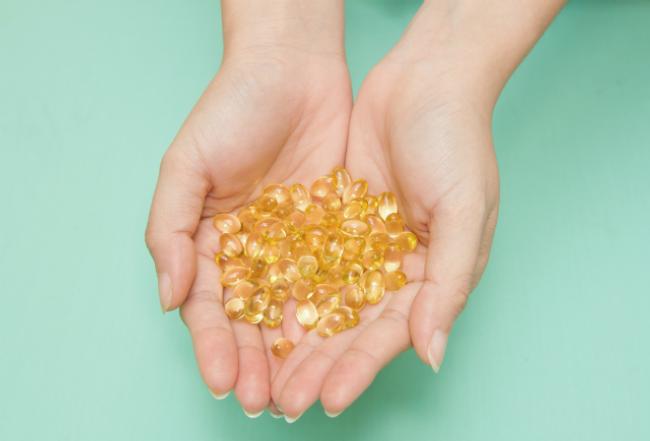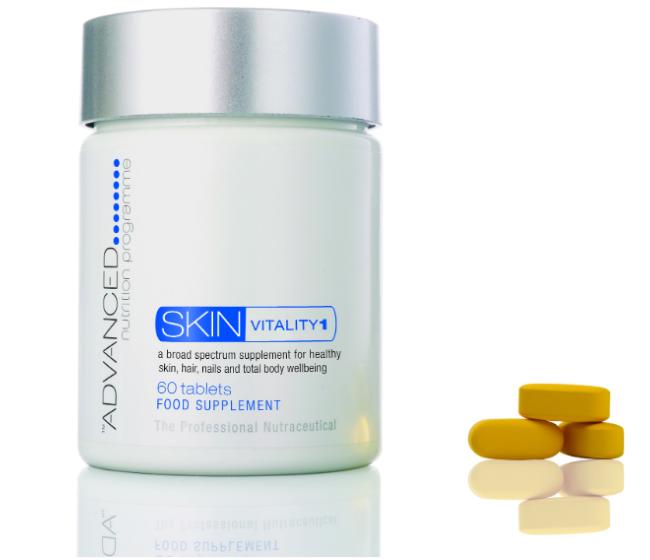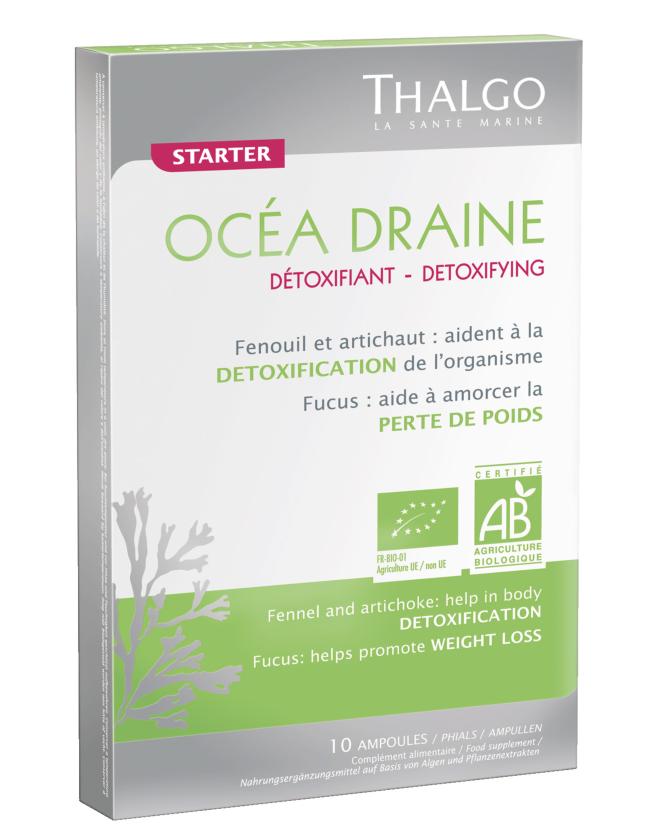Nutritional value
WORDS NORA ELIAS
With a strong industry trend towards delivering integrated lifestyle solutions that go beyond simply providing spa treatments and with clients increasingly looking to spas to assist with their overall health and wellbeing, a growing number of businesses are now incorporating nutrition and nutritional supplements into their offering.
Industry insiders are in agreement that, not only are consumers more aware of and interested in the role nutrition plays in looking and feeling good, the sector itself is also more receptive to its importance and benefits.
British brand Proto-col offers a wide range of nutritional supplements, including its bestselling pure collagen skin supplement capsules, and founder and managing director James Greenwell explains that attitudes have definitely changed in recent years.
“When I first started out 10 years ago, bringing collagen in a capsule to the marketplace, the industry was very skeptical about the concept but, in the last few years, it’s very much become accepted,” he says.

“I think the use and acceptance of this type of supplementation in the industry is only going to continue to grow.” Lorraine Perretta, head of nutrition at iiaa, which has distributed the Advanced Nutrition Programme range of skincare and wellbeing supplements since 2006, reports a similar experience.
“When we first introduced the supplements we certainly had our early adopters, but since then we have seen things grow and grow, with a huge increase in interest in the last 18 months in particular.”
Perretta adds that the Professional Beauty show in London in February this year was “the first time we’ve had people come up to us and specifically say that they are looking for a nutrition supplement range to introduce into their spa”.
Marian Green, UK managing director for Thalgo, which has an extensive range of marine food supplements, believes that the growing prominence of nutrition in the spa offering is a natural consequence of the sector’s global focus on wellbeing, and of a more knowledgeable clientele.
“I think people are now more and more savvy about supplements, about why we need to take them and the part they can play in balancing the effects of stress, pollution, illness and unhealthy lifestyles,” she says. She adds that “because there is now a big focus on health and wellbeing in spas, people do look to them, and to supplements, to help them achieve the results they strive for.”
Picking your products
Looking at the supplement element of nutrition, there is a wide-ranging number of reasons to take them; from collagen capsules to strengthen skin, joints and nails and vitamin C to bolster the immune system to supplements designed to aid weight loss, body sculpting and detox. Key for a spa looking to take a supplements range on is, however, knowing which products are likely to move.
For Greenwell, it’s clear from Proto-col sales which areas consumers are primarily interested in. “The two key products for us are the collagen capsules and the Green Magic superfoods formulation, which both tackle anti-ageing from the inside out,” he says, explaining that “80% of our nutritional supplements sales come from these two products”. Green similarly points out that the most popular of Thalgo’s supplements give a strong indication of the main areas clients are looking to address.
“Our first best seller is the Slim 7 drink, which of course targets slimming. Our second best seller is the Pro Collagène, which addresses anti-ageing, and our third best seller is the Océa Draine, which is detoxifying and focuses on health and wellbeing.”
While certain issues, such as anti-ageing, are of universal concern to clients, the nutritional range that is right for a spa, and the products within it that it may choose to stock, will nevertheless vary depending on the type of spa it is and its client demographic.

“Spas don’t have to stock our entire range; they can pick and choose and we try to guide them on the products that are right for them, based on who their clients are and what their focus is,” Perretta explains of the approach of the Advanced Nutrition Programme.
“We always tailor the offering to them.” The spa at Stoke Park country club and hotel in Buckinghamshire in the UK stocks part of the Thalgo supplements range and spa operations manager Anna Thomas, says they selected the products they deemed most suitable for them. “We handpicked what we felt would work for our clientele, to reflect the areas I felt people would be most concerned about.”
In addition to the Pro Collagène, which was the first supplement the spa took on and which quickly became its best selling product across the board, this entailed “taking on the detoxing and weight loss focused products, because a lot of the ladies that come into our spa and our gym are looking for that,” Thomas explains.
“Anti-ageing, detox and weight loss are, in our experience, the three key things that people turn to nutritional supplements for.” The supplements have continued to perform very well for the spa, with Thomas commenting that “they have been extremely well received, there are always a few nutritional supplements in our top five best selling products.”
Selling successfully
The supplements are not, Thomas adds, offered as part of any specific programmes or packages; rather they are suggested when deemed relevant. “Our therapists will recommend them after certain treatments,” she says.
This is also the approach taken at the spa at Donnington Valley Hotel and Spa in Berkshire in the UK, which stocks Proto-col’s Green Magic and collagen capsules. Spa director Hannah Henley explains that the supplements are sold not only by the spa staff, but also by the personnel in the hotel fitness club.
“The therapists tend to concentrate more on the collagen, whereas the health club team tend to concentrate more on the Green Magic,” she says. In terms of selling both the importance of nutrition and the product themselves to clients, Henley says promotional days work very well for the spa, particularly when it come to Green Magic, available in both powder and capsule format.
“When we do promotional days, we have the product out the front and we let people try it and that works very well; a lot of people like the idea of the product but they want to be talked through it.”
That working with the health and fitness side of the business can be a good move is an experience Green echoes. “Fitness instructors know a lot about health and nutrition, so we often try to get them involved and train them on the nutritional products,” she says. “On the Fred Olsen cruise liners, where we have the products, it is for example the fitness personnel who do a lot of the selling.”

Time for training
As with any other product range a spa takes on, training is integral to successfully selling nutrition. However, the fact that nutrition is a new topic to many therapists makes training especially important in this area. “Therapists don’t have nutritional training so, as part of our Advanced Nutrition Programme training, we educate them on vitamins and supplements,” Perretta says.
“We don’t just talk about the general theory, we look at the practicalities of how to recommend products to the end user and how to incorporate them into [the spa offering].” For Thalgo it is, Green says, also vital that “the therapists and the fitness staff are always properly briefed on how the supplements should be used; what they do, how to recommend the best products for a particular concern and if there are any contraindications”.
Part of what Thalgo refers to as “the 360°concept” of treating issues and concerns from the inside out, is connecting supplements to the most relevant treatments during training.
“In our training, we always link the correct supplement to the correct treatment, regardless of whether we’re doing facial or body treatment training,” Green explains. Reinforcing the essential role of education, Greenwell adds that “it’s all about training and learning. You can give someone the best products in the world, but if they don’t understand them, it will be impossible to sell them.”

The programme option
Nutrition is of course not only about supplements and training remains vital, regardless of the way in which you choose to incorporate nutrition into your spa. In January this year, UK-based 3D Aesthetics launched 3D-lipolite, a weight loss programme centred on the three cornerstones of nutrition, exercise and 3D-lipo treatments.
Nutritional therapist Jenny Adams, who is the managing director of the Meadow Aesthetics clinic in Coventry and helped develop the nutrition side of the 3D-lipolite programme, admits that “it can be quite hard with nutrition; there are so many variables to it”.
The concept behind the training, which is still being finetuned, is, she says, “to send the relevant person at the spa or clinic to me for training, I can then also help them to train other people, and they can then pass that information on to clients.”
To make things easier for operators, the company has created a simple design to illustrate what you would eat as part of the programme, the nutritional component of which focuses on a healthy combination of protein, carbohydrates and essential fatty acids and incorporates supplements in the form of shakes. “We have designed a plate, which very much looks like the government’s guidelines for a balanced diet and which is very easy for people to understand,” Adams says.
Charmaine Jooste is the medical director for Enerzona UK, part of RégimA Skin Treatments, which last year brought the Zone nutrition programme to Britain. The Zone diet, developed by American biochemist Dr Barry Sears, is based on the concept of reducing cellular inflammation and thereby lessening the risk of diseases and conditions such as cancer, Alzheimer’s and obesity, by switching to a diet consisting of 40% carbohydrates, 30% protein and 30% fat.
When it comes to training the spas and clinics who take the programme on, Jooste explains that “we run a Zone consultancy twice a year, a full training day, and once you have taken this and passed an exam to become Zone certified, you can then choose how to consult people.”
How they opt to offer the programme is, she says, up to the individual business. “You can either have a dedicated person allocated to the programme. Or you could offer it on more of an ad-hoc basis where, if you’re carrying out a treatment, for example, and you find that the client might be interested in the Zone, you can refer them to whoever is trained on the programme in your spa.”

Adding value
Education on nutrition is not just about training spas and clinics on how to sell products and programmes, but ultimately also about educating consumers on healthier nutrition.
Roy Cowley, managing director of 3D Aesthetics, explains that, for him and for the company, the 3D-lipolite programme is about a lifestyle change. “It’s not just about getting people down to a certain weight, it’s about re-educating them so that they can maintain that weight for life, that’s very important,” he emphasises.
The programme was originally created for those with a BMI of over 30 and classed as clinically obese but is now also available to others who want to lose weight. The programme is, Cowley says, “about the bigger picture: it’s about changing lives.” Jooste also stresses that for Enerzona and RégimA, informing clients is an integral part of the Zone philosophy.
“To educate the public is a core part of our business concept,” she says of the programme, which includes omega-3, polyphenol and protein food supplements and snacks such as healthy nutrition bars and crackers. “It’s not just about selling products,” she says.
Any spa looking to add nutrition to its offering, whether in the form of supplements alone or in the shape of an entire programme, will naturally be looking at the business angle and what the move could add to its profitability.
Thomas believes one of the reasons the Thalgo supplements have worked so well at Stoke Park is that they cater to customer’s growing demand for instant results. “I think people these days want a quick fix; they want faster results and they want to see a difference,” she says.
“Women especially will now often have a dress they want to get into for a specific party or occasion, for example, and the supplements can really work in that way. So they fit in to the fast-paced lifestyle that everyone has now.”
For Adams, it’s about attracting new customer groups. “The advantage of 3D-lipolite is that it can attract a new and different type of client,” she says. “The people who have come to me for weight loss wouldn’t have come to me for machine based treatments, because those treatments won’t help them lose weight, they just sculpt,” she adds. “And that’s how I look at it; it’s for people who wouldn’t normally come to your spa, for the clients who haven’t knocked on your door yet.”

